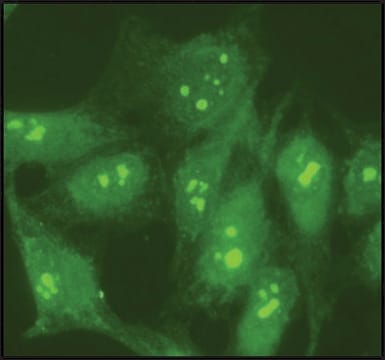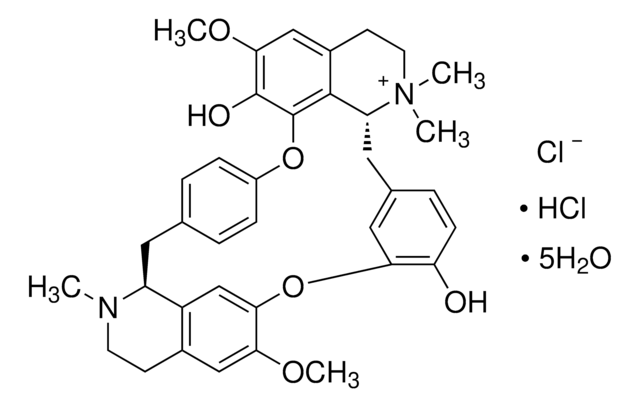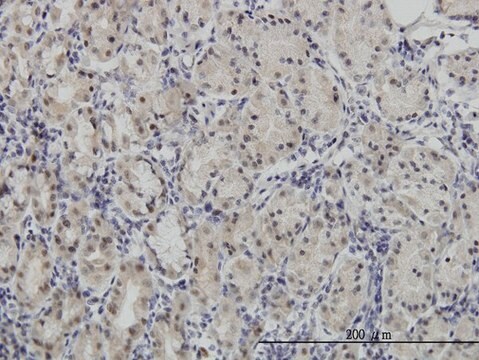05-565
Anti-Nucleolin Antibody, clone 3G4B2
culture supernatant, clone 3G4B2, Upstate®
About This Item
Produits recommandés
Source biologique
mouse
Niveau de qualité
Forme d'anticorps
culture supernatant
Type de produit anticorps
primary antibodies
Clone
3G4B2, monoclonal
Espèces réactives
human, canine, monkey
Fabricant/nom de marque
Upstate®
Technique(s)
immunocytochemistry: suitable
immunoprecipitation (IP): suitable
western blot: suitable
Isotype
IgG
Numéro d'accès NCBI
Numéro d'accès UniProt
Conditions d'expédition
dry ice
Modification post-traductionnelle de la cible
unmodified
Informations sur le gène
human ... NCL(4691)
Description générale
nucleo-cytoplasmic transport. Nucleolin also exhibits autodegradation, DNA and RNA helicase activities, and DNA-dependent ATPase activity. Nucleolin activities may be regulated by proteolysis, methylation, ADPribosylation, and phosphorylation by several kinases, including casein kinase II (CK2), p34cdc2, and protein kinase C-ζ.
Spécificité
Immunogène
Application
Qualité
Description de la cible
Liaison
Forme physique
Remarque sur l'analyse
Positive Antigen Control: Catalog #12-309, Hela cell nuclear extract. Add an equal volume of Laemmli reducing sample buffer to 10 μL of extract and boil for 5 minutes to reduce the preparation. Load 20 μg of reduced extract per lane for minigels.
Informations légales
Vous ne trouvez pas le bon produit ?
Essayez notre Outil de sélection de produits.
En option
Code de la classe de stockage
10 - Combustible liquids
Classe de danger pour l'eau (WGK)
WGK 1
Certificats d'analyse (COA)
Recherchez un Certificats d'analyse (COA) en saisissant le numéro de lot du produit. Les numéros de lot figurent sur l'étiquette du produit après les mots "Lot" ou "Batch".
Déjà en possession de ce produit ?
Retrouvez la documentation relative aux produits que vous avez récemment achetés dans la Bibliothèque de documents.
Notre équipe de scientifiques dispose d'une expérience dans tous les secteurs de la recherche, notamment en sciences de la vie, science des matériaux, synthèse chimique, chromatographie, analyse et dans de nombreux autres domaines..
Contacter notre Service technique






